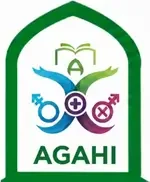Death Certificate Fee Waiver
In a recent meeting chaired by Sindh Chief Minister Syed Murad Ali Shah, the Sindh Cabinet approved several landmark decisions aimed at improving public welfare, simplifying administrative procedures, and ensuring environmental protection. From implementing the Death Certificate Fee Waiver to addressing the region’s air pollution and stabilizing wheat prices, these reforms are set to make a significant impact on the daily lives of the people in Sindh. Let’s dive into the key decisions and understand their implications.
Waiver of Death Certificate Registration Fee
One of the standout decisions made by the Sindh Cabinet was the approval of a fee waiver for death certificate registration across the province. Starting immediately, citizens can obtain death certificates free of cost at municipal, union council, and town committee levels. This initiative is a part of the Sindh government’s ongoing efforts to simplify bureaucratic processes and make essential services more accessible to the general public.
This decision aligns with the Sindh Local Government Act of 2013 and contributes to the strengthening of the Civil Registration and Vital Statistics (CRVS) system in the province. Notably, this move follows last month’s approval of free birth registrations in Sindh, reinforcing the government’s commitment to improving public record-keeping and access to vital information.
Reforms in Inheritance Documents: Sindh Letters of Administration and Succession Certificates Act
In a bid to make inheritance procedures more transparent and efficient, the Sindh Cabinet also approved important amendments to the Sindh Letters of Administration and Succession Certificates Act, 2021. These reforms aim to streamline the issuance of inheritance documents, a process often burdened with bureaucratic delays.
One of the key changes is the elimination of a clause that previously treated the presence of minors as a legal controversy. Now, heirs or their representatives can file applications for succession certificates with the necessary documents. For minors or mentally disabled heirs, however, the certificates will only take effect after a guardianship certificate is issued under the Guardian and Wards Act, 1890.
The reforms also introduce strict penalties for false declarations under the Pakistan Penal Code, ensuring greater transparency in the process.
Surrender Policy for Riverine Bandits: A Path to Peace and Socio-Economic Development
Another significant decision by the Sindh Cabinet was the approval of the Surrender Policy for Dacoits in the Katcha Areas of Sukkur and Larkana Divisions. This policy is aimed at consolidating peace, promoting socio-economic development, and ensuring the writ of the state in the riverine areas.
In recent months, several dacoits in the region have shown a willingness to surrender, following successful security operations and extensive negotiations with local communities. The policy establishes a humane and transparent process for their voluntary surrender under the due process of law.
Key features of the policy include:
- Mandatory disarmament
- Protection for families of surrendered dacoits
- Access to rehabilitation, vocational training, healthcare, and education
The Sindh government will also prioritize the revival of schools, health services, and development projects in these areas to ensure long-term peace and stability.
Wheat Release Policy for 2025–26: Stabilizing Prices and Ensuring Financial Discipline
To combat the rising prices of wheat flour and ensure that the public does not suffer due to market fluctuations, the Sindh Cabinet approved the Wheat Release Policy for 2025–26. Under this policy, 1.265 million metric tonnes of wheat will be released to flour mills and chakkies at Rs. 9,500 per 100 kg bag.
The policy has two key objectives:
- Stabilize wheat flour prices and provide relief to the public.
- Ensure financial discipline by using the sale proceeds to repay bank loans and reduce liabilities.
The phased wheat releases will begin in October 2025, with an emphasis on transparency and preventing market manipulation. This will help ensure that benefits reach the public without interference from profiteers.
Ban on Tyre Pyrolysis Plants: Combating Air Pollution
In an effort to curb severe air pollution in Karachi, the Sindh Cabinet approved a complete ban on tyre pyrolysis plants across the province. Tyre pyrolysis, a process that involves burning used tyres to produce fuel, has been linked to the release of toxic pollutants and hazardous emissions, worsening the already deteriorating air quality in Karachi.
In addition to the ban, the cabinet also approved new regulations under the Sindh Environmental Protection Agency (SEPA) to regulate substandard fuels, including Tyre Pyrolysis Oil (TPO). This step is crucial in protecting public health and safeguarding the environment from harmful emissions.
KP Govt Prohibits Hunting in 57 Rivers & Lakes to Protect Waterfowl & Rare Birds
Levy of Infrastructure Cess: Protecting Provincial Revenue
In another significant move, the Sindh Cabinet approved the resumption of the Infrastructure Development Cess (IDC) on the import of petroleum products. This decision is aimed at protecting the provincial revenue. And ensuring the lawful implementation of the Sindh Infrastructure Development Cess Act.
The Supreme Court of Pakistan had earlier suspended a Sindh High Court ruling. And ordered oil companies to provide bank guarantees for the release of petroleum consignments. The cabinet has now approved the withdrawal of previous undertakings from companies. Like Pakistan State Oil (PSO) and others, it ensures strict compliance with the court’s directives.
Regularisation of LBOD Employees: Justice for Long-Serving Workers
The Sindh Cabinet also approved the regularisation of 78 contingent employees working under the Left Bank Outfall Drain (LBOD) project. These employees have been serving on a contingent-paid basis since the transfer of the LBOD project from WAPDA to the Sindh Government.
In response to a Sindh High Court order, which recognized the employees’ long service. And entitlement under the 2018 statute, the cabinet’s decision aims to provide job security and justice to these workers. The regularisation process will be carried out transparently and in accordance with the court’s instructions.
Peshawar Introduces Direct Salary Payments from AG Office to Employees Accounts
Property Tax Reform: Shifting from ARV to CV System
In a bid to modernize the property tax system and align it with international best practices. The Sindh Cabinet has discussed a major reform proposal to shift the Urban Immovable Property Tax (UIPT) assessment system from Annual Rental Value (ARV) to Capital Value (CV) basis. This shift, already adopted by Punjab, will ensure fairer valuation. Expand the tax base and improve revenue generation for local governments.
This transition will also make the system more equitable, ensuring that all properties. Including open plots, are properly taxed based on their market value. To ensure a smooth transition, the government will conduct a Karachi Property Survey under the World Bank-funded CLICK Project. This is expected to bring over two million new properties into the tax net by January 2026.

